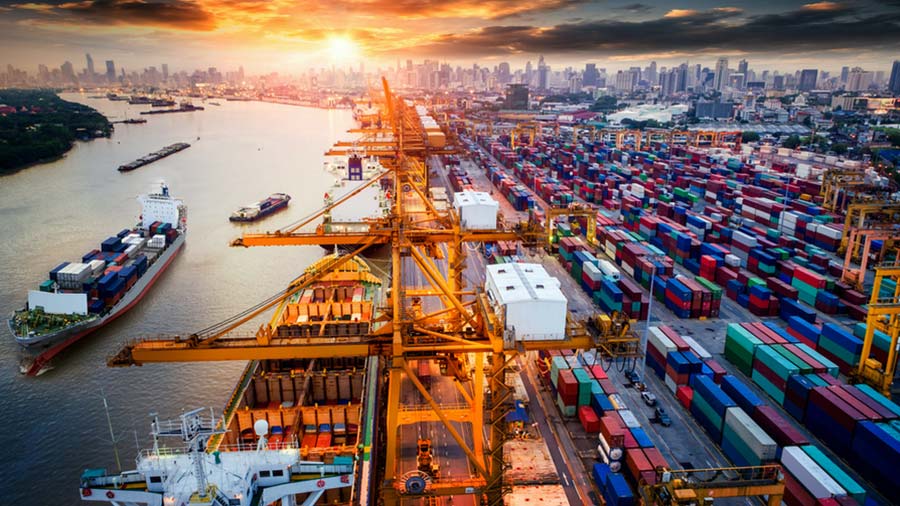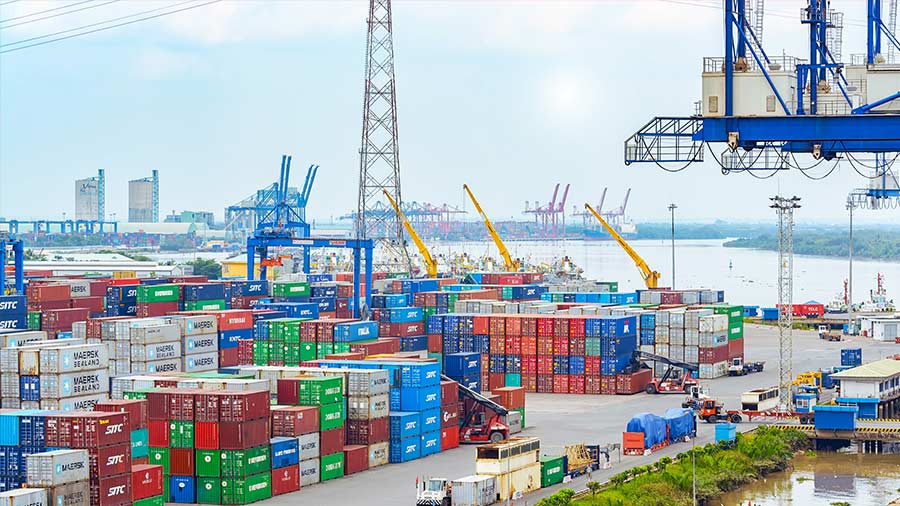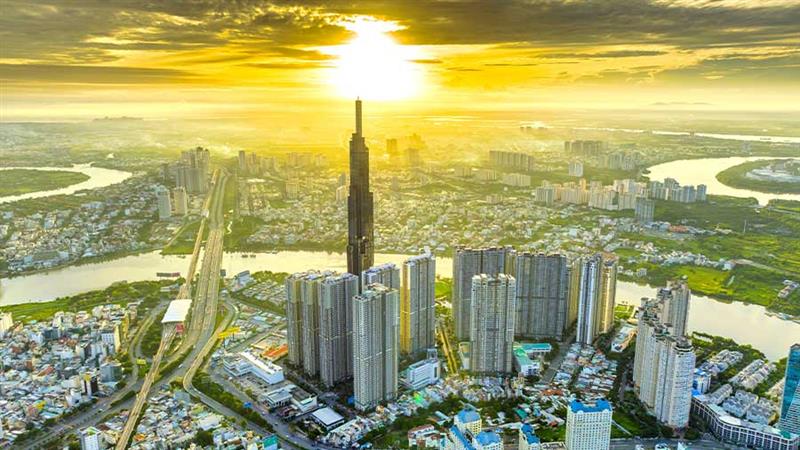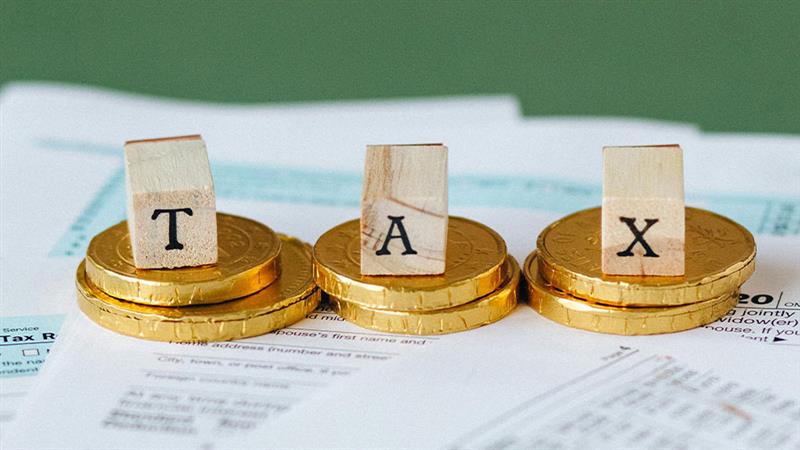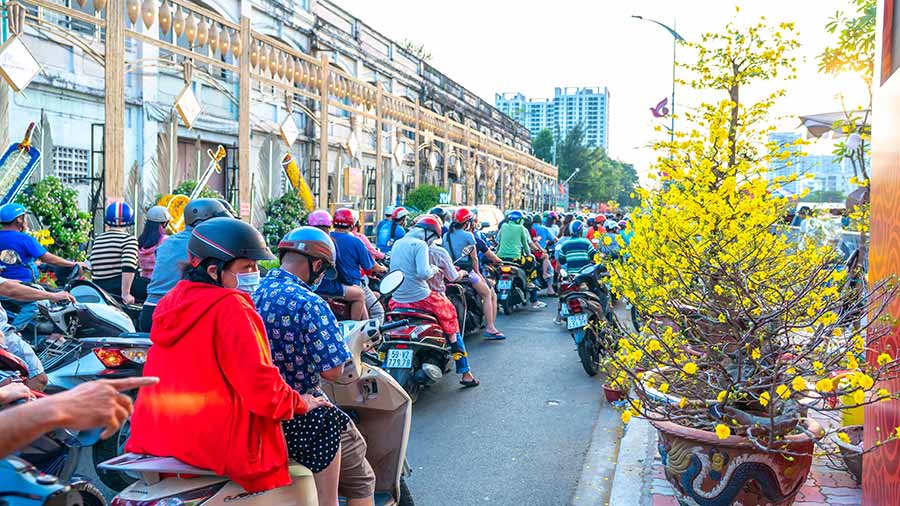Economy & Trade
Vietnam Revises PDP8: Key Targets of the National Power Development Plan
04/17/2025The article examines Vietnam's revised National Power Development Plan for the 2021-2030 period, with a vision to 2050 (PDP8), highlighting key targets and strategies for increasing renewable energy capacity and ensuring sufficient electricity supply to support the nation's economic growth through 2030 and beyond.
Vietnam-China Economic Partnership: Insights from Top Chinese Leader’s Visit
04/17/2025During his visit from April 14 to 15, Chinese President Xi Jinping emphasized the need to strengthen Vietnam-China trade and economic relations. This article explores the implications of the visit for businesses on both sides, particularly in the context of the ongoing trade war.
Vietnam Reduces MFN Tariff Rates on Strategic Imports: Decree 73
04/16/2025Vietnam reduces Most Favored Nation (MFN) tariffs on key imports under Decree 73/2025/ND-CP ("Decree 73") to enhance trade relations and supply chain access.
Vietnam's Government Introduces Official Plan for Provincial Mergers
04/15/2025Vietnam’s government has introduced its proposed plan to build a two-tier local government model, reducing the current centrally governed cities and provinces to 34 units, with a goal to provide a bedrock for sustainable growth targets.
Vietnam-Denmark Relations: Trade, Investment, and Business Opportunities
04/11/2025In recent years, Vietnam and Denmark have forged stronger diplomatic ties, marked by growing collaboration across multiple sectors. This article examines the current state of Vietnam-Denmark diplomatic, trade, and investment relations and discusses some of the Vietnamese industries with considerable potential for Danish investors.
Vietnam-US Trade and Investment Relations: Q1 2025 Update
04/08/2025Despite ongoing uncertainty, the economic relationship between the two nations has continued to grow, with significant expansion in trade, investment, and bilateral agreements. We discuss the bilateral trade and investment relations between Vietnam and the US amidst the tariff threat.
-
04/04/2025
The Impact of Tariffs on Vietnamese Exports: US-Vietnam Trade Relations Under Trump 2.0
Vietnam Briefing -
04/03/2025
Understanding the US Tariff List: Implications for Vietnam
Vietnam Briefing -
04/02/2025
Vietnam-Australia Strengthen Development Partnership 2025-2030
Vietnam Briefing -
04/01/2025
China’s Manufacturing Presence in Vietnam: Locations and Future Growth
Vietnam Briefing -
03/28/2025
Opportunities Amid Tariff Risks: Vietnam Aims for Trade Balance with the US
Vietnam Briefing
Tax & Accounting
Invoice Compliance in Vietnam: Key Changes under Decree 70
04/10/2025Effective June 1, 2025, Decree 70/2025/ND-CP will amend and supplement a broad range of provisions under Decree 123/2020/ND-CP, which prescribes the issuance and maintenance of invoices and records. This article outlines key changes specified under the new decree, as well as compliance advisory for regulated firms.
Profit Repatriation in Vietnam: A Brief Guide in 2025
03/24/2025Vietnam has established clear regulations regarding profit repatriation for foreign investors, aiming to create a transparent and orderly process for foreign investors. This article explores the necessary procedures for transferring profits derived from direct investments in Vietnam and the required documentation for notification of profit remittance.
Vietnam Introduces Tax Department under Decision 381
03/21/2025On February 26, 2025, Vietnam officially terminated its General Department of Taxation and introduced a new model. This article examines the functions, responsibilities, and the new organizational structure of Vietnam's tax system.
Q&A: Compliance with Vietnam’s Transfer Pricing Rules
03/04/2025The 2024 tax finalization, which ends on March 31, 2025, and the transfer pricing compliance declaration pose significant challenges for businesses engaged in related party transactions to comply with current and newly updated rules. This article addresses the most common questions we encounter when supporting our clients navigating Vietnam’s transfer pricing regulations.
Related Party Transactions in Vietnam: Key Provisions Under Decree 20
02/26/2025Stay compliant with Vietnam’s latest regulations on related party transactions. Explore key provisions of Decree 20 and its impact on transfer pricing, disclosure requirements, and tax compliance.
Vietnam’s New VAT Law: Key Compliance Guidance
02/20/2025We examine Vietnam's new Value Added Tax (VAT) Law, set to take effect on July 1, 2025, which introduces significant changes to the country's VAT regulations, along with recent clarifications by the Ministry of Finance.
-
02/18/2025
How Vietnam Will Implement the Global Minimum Tax: Draft Decree Guiding Resolution 107
Vietnam Briefing -
02/06/2025
Understanding the Updates to Vietnam's Tax Codes in 2025
Vietnam Briefing -
01/29/2025
Vietnam’s Personal Tax Code: Key Changes under Circular 86
Vietnam Briefing -
01/03/2025
An Overview of Vietnam’s Environmental Protection Tax in 2025
Vietnam Briefing -
12/19/2024
Q&A: Personal Income Tax Finalization in Vietnam
Vietnam Briefing
Legal & Regulatory
Invoice Compliance in Vietnam: Key Changes under Decree 70
04/10/2025Effective June 1, 2025, Decree 70/2025/ND-CP will amend and supplement a broad range of provisions under Decree 123/2020/ND-CP, which prescribes the issuance and maintenance of invoices and records. This article outlines key changes specified under the new decree, as well as compliance advisory for regulated firms.
Trademark in Vietnam: Tips for Avoiding Refusal and Protecting Your Brand
04/09/2025This article examines the legal basis for trademark refusals in Vietnam under the country's regulations and provides guidance on how applicants can respond effectively to minimize the risk of rejection.
Unlocking Growth: Vietnam’s Plan to Reduce Bureaucracy and Boost Investment
03/27/2025Vietnam is implementing key reforms to enhance its business climate, including reducing unnecessary business conditions by 30 percent. This move aligns with Vietnam’s broader commitment to fostering a more efficient and competitive economy.
Profit Repatriation in Vietnam: A Brief Guide in 2025
03/24/2025Vietnam has established clear regulations regarding profit repatriation for foreign investors, aiming to create a transparent and orderly process for foreign investors. This article explores the necessary procedures for transferring profits derived from direct investments in Vietnam and the required documentation for notification of profit remittance.
Vietnam’s Amended Securities Law: Key Takeaways for Foreign Investors
03/20/2025Vietnam has made significant amendments to the 2019 Securities Law to address regulatory gaps, strengthen market oversight, and improve investor protection. The amendments aim to create a more transparent and stable investment environment.
Corporate Restructuring in Vietnam: Strategic Considerations for Businesses
03/10/2025As Vietnam continues to attract international businesses, companies are looking for ways to effectively enter and navigate the market or exit it when necessary. Strategic restructuring can help businesses adapt to the ever-evolving market conditions and position themselves for success in Vietnam's competitive economic environment.
-
03/05/2025
Vietnam to Amend Food Safety Regulations: Potential Changes and Compliance Strategies
Vietnam Briefing -
02/18/2025
Dispute Resolution Methods in Vietnam and the Advantages of Arbitration
Vietnam Briefing -
02/17/2025
Vietnam’s Regulatory Framework for Corporate Restructuring
Vietnam Briefing -
02/11/2025
Vietnam’s Amended Pharmaceutical Law: Navigating the Key Changes
Vietnam Briefing -
02/05/2025
Why Companies in Vietnam Choose to Restructure Their Businesses
Vietnam Briefing
Industries
Vietnam Revises PDP8: Key Targets of the National Power Development Plan
04/17/2025The article examines Vietnam's revised National Power Development Plan for the 2021-2030 period, with a vision to 2050 (PDP8), highlighting key targets and strategies for increasing renewable energy capacity and ensuring sufficient electricity supply to support the nation's economic growth through 2030 and beyond.
Evolving Landscape of Vietnam’s Snack Market: Ample Opportunities for Businesses
04/07/2025Vietnam’s snack market is undergoing rapid evolution, leading to an increased demand for convenient and diverse snack options. As more consumers, especially in major cities, lean toward healthy and premium snacks, both local and international brands are discovering ample opportunities in this vibrant and dynamic market.
China’s Manufacturing Presence in Vietnam: Locations and Future Growth
04/01/2025China’s manufacturing presence in Vietnam is experiencing dynamic growth, fueled by robust investments and Vietnam’s advantages as a production hub. This article examines the scale of Chinese investments and their concentrations in Vietnam's key manufacturing hubs.
Vietnam’s Booming ICT Market Expands Opportunities for Foreign Investment
03/31/2025Vietnam’s ICT industry is experiencing rapid growth and offers vast potential for further development. With significant investments in sectors such as AI, cloud computing, data centers, and blockchain, Vietnam is positioning itself as an attractive destination for investors.
Vietnam Real Estate Market 2025: A Prime Investment Destination in Southeast Asia
03/26/2025This article explores Vietnam’s booming real estate sector, highlighting key market trends, investment opportunities, and regulatory changes shaping the industry in 2025.
Elon Musk’s SpaceX and Suppliers Bet Big on Vietnam
03/19/2025This article discovers how Elon Musk's SpaceX is investing US$1.5 billion in Vietnam to expand Starlink satellite services, with suppliers like Wistron NeWeb Corporation enhancing the country's role in global high-tech manufacturing.
-
03/19/2025
Vietnam Briefing
-
03/18/2025
Vietnam Briefing
-
03/14/2025
Selling to the Vietnam Market: Winning Strategies for Foreign Retailers
Vietnam Briefing -
03/11/2025
Vietnam Extends EV Registration Fee Exemption Until 2027
Vietnam Briefing -
03/06/2025
Vietnam’s M&A Market in 2025: Healthcare and Education Sectors Set to Thrive
Vietnam Briefing
HR & Payroll
Vietnam’s Visa for Indian Tourists: A Brief Guide
02/26/2025Vietnam is a popular destination for Indian tourists, recording a significant rise in visitor numbers recently. This article provides a concise guide on Vietnam travel options and visa requirements to ensure an enjoyable trip for Indian citizens.
Vietnam’s Legal Framework for Probationary Contracts: Implications for Businesses
02/19/2025The Vietnamese government regulates probationary contracts to protect workers' rights, with a clear legal framework in place for the initial employment phase. This article examines the types of probationary contracts in Vietnam and their corresponding social insurance obligations.
Vietnam's 2025 Job Market: Opportunities and Challenges
02/12/2025Vietnam's 2025 job market post-Tet is set for dynamic shifts, with increased hiring and job mobility across sectors. We present key market insights from HCMC, Hanoi, and prominent industrial hubs.
Vietnam’s Personal Tax Code: Key Changes under Circular 86
01/29/2025Circular 86 will be implemented in two phases: the first phase, effective February 6, 2025, enforces all provisions except for the use of citizen ID numbers in tax-related functions. In the second phase, starting July 1, 2025, ID numbers will officially replace tax codes.
Commuting During Tet: Strategies for Businesses in Vietnam
01/20/2025With Tet approaching, businesses in Vietnam are urged to adopt strategies to navigate severe traffic congestion in major cities like Hanoi and Ho Chi Minh City as authorities work to alleviate gridlocks.
Vietnam’s New Trade Union Law: Key Changes and Foreign Workers’ Rights
01/03/2025We examine Vietnam’s New Trade Union Law, which will come into force from July 1, 2025, and is expected to bring about notable changes to protect the rights of foreign workers in Vietnam.
-
12/24/2024
Working in Vietnam as an Expat: A Quick Guide
Vietnam Briefing -
12/23/2024
Payroll in Vietnam: A Guide to Compensation, Bonuses, and Benefits
Vietnam Briefing -
12/18/2024
Overtime Regulations and Compensation in Vietnam
Vietnam Briefing -
12/16/2024
Vietnamese New Year (Tet) 2025: How to Prepare Your Business
Vietnam Briefing -
12/12/2024
2025 Vietnam Public Holidays Calendar
Vietnam Briefing
 Our firm Dezan Shira & Associates provides legal, tax and operational advisory across Asia.
Our firm Dezan Shira & Associates provides legal, tax and operational advisory across Asia. 




